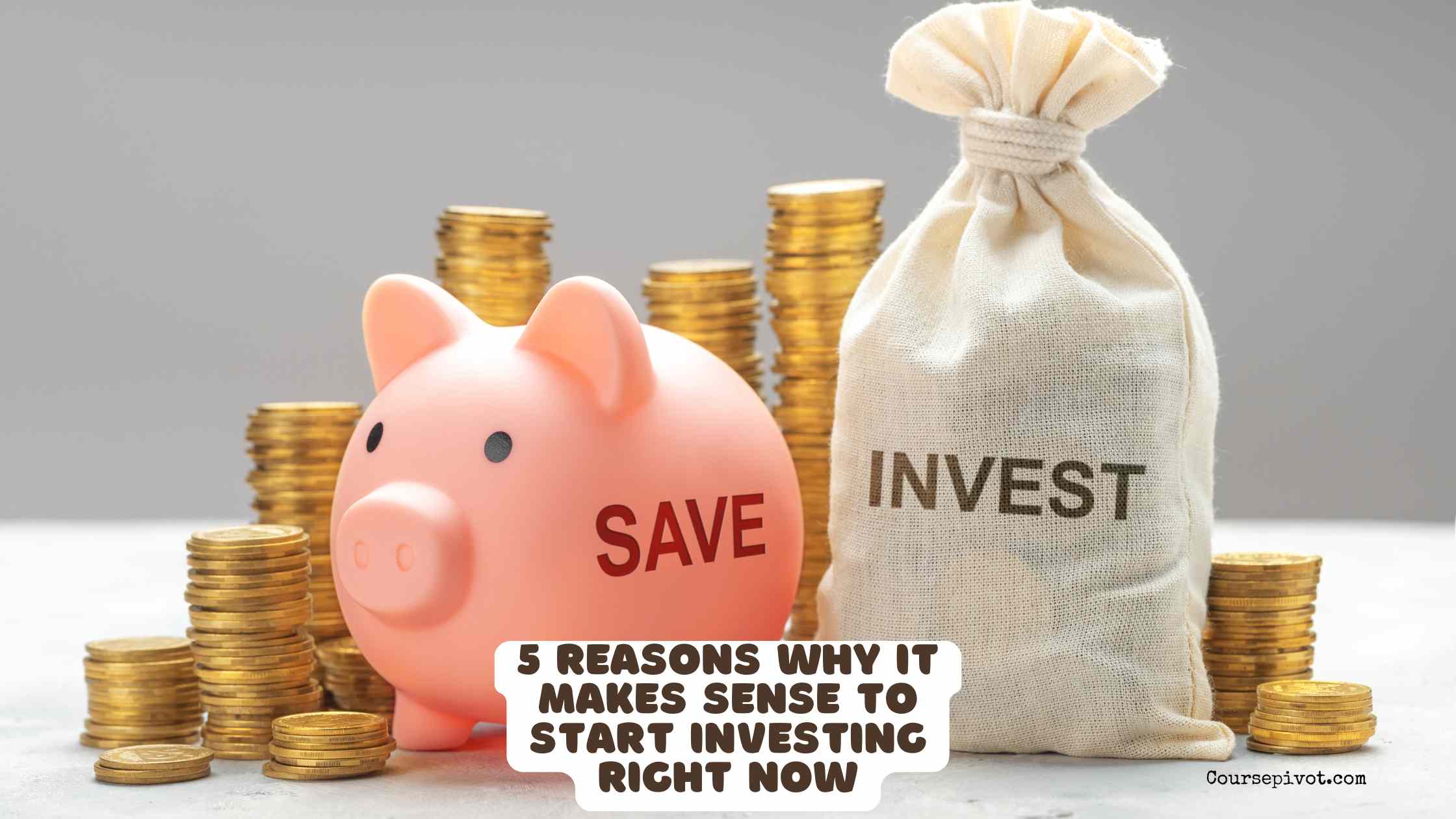
5 Reasons Why It Makes Sense to Start Investing Right Now
Investing can feel daunting, but the sooner you start, the better positioned you are to build wealth and secure your financial future. With markets constantly evolving and opportunities emerging, there’s no better time than the present to take the plunge. Whether you’re saving for retirement, a home, or financial freedom, here are five compelling reasons why it makes sense to start investing right now. Backed by timeless financial principles and practical insights, this blog shows how acting today can transform your tomorrow.
Table of Contents
1. Harness the Power of Compound Interest
Compound interest—where your earnings generate more earnings—is a game-changer, and time is its greatest ally. Starting now gives your investments more years to grow exponentially. For example, investing $5,000 annually at a 7% average annual return (typical for stock market index funds) can grow to over $1 million in 40 years, with only $200,000 contributed. Waiting just 10 years cuts that to $543,000, losing nearly half the potential. The earlier you start, the less you need to invest to reach big goals, making now the ideal moment to begin.
Why It Matters: Every day you delay shrinks your compounding window, costing thousands or millions over time. Starting now maximizes your returns, even with small amounts.
2. Capitalize on Current Market Opportunities
Markets fluctuate, creating entry points that reward early action. Low-cost index funds, exchange-traded funds (ETFs), or emerging sectors (like renewable energy or tech) often offer strong long-term potential, especially during dips. For instance, investing in a broad market ETF during a correction can yield higher returns as markets recover (historically, the S&P 500 rebounds within 1–2 years of major dips). Waiting for the “perfect” moment risks missing gains, as timing the market is nearly impossible—70% of the best trading days follow downturns, per historical data.
Why It Matters: Starting now lets you buy in at today’s prices, diversifying across assets to ride out volatility and capture growth over time.
3. Build Financial Discipline and Habits
Investing now fosters lifelong habits that pay off. Setting up automatic contributions—say, $100/month to a Roth IRA—builds discipline and removes the temptation to spend. Over time, this consistency compounds, and small sacrifices (like skipping a daily coffee) add up. For example, $100/month at 7% grows to $82,000 in 30 years, enough for a home down payment or retirement boost. Starting early also lets you learn about markets, risk, and strategies while stakes are low, preparing you for bigger investments later.
Why It Matters: Investing now trains you to prioritize saving over spending, creating a mindset that ensures long-term financial success.
4. Hedge Against Inflation
Inflation erodes the value of cash over time—$1 today buys less in a decade due to rising costs (historically 2–3% annually). Investing in assets like stocks, real estate, or bonds outpaces inflation, preserving and growing your purchasing power. For instance, a savings account at 1% interest loses value against 3% inflation, while stocks averaging 7% keep you ahead. Starting now means your money works harder to combat rising prices, securing your lifestyle in the future.
Why It Matters: Cash in a low-yield account shrinks in real value; investing now protects your wealth against inflation’s slow burn.
5. Gain Flexibility for Life’s Goals
Investing early provides options—whether it’s retiring early, buying a home, or traveling. Early investments grow into a safety net, reducing stress and reliance on future income. For example, $200/month in a diversified portfolio at 7% from age 25 can yield $262,000 by age 50, enough for a major life milestone. Starting now also allows you to take calculated risks (e.g., stocks over bonds) while you’re young and can recover from market dips, unlike later when time is short.
Why It Matters: Investing today builds a financial cushion, giving you freedom to pursue dreams or handle unexpected setbacks.
Practical Tips to Start Investing Now
- Begin Small: Use apps like Acorns or Robinhood to invest $10–$50/month in ETFs or fractional shares.
- Leverage Tax-Advantaged Accounts: Open a Roth IRA or 401(k) for tax-free or tax-deferred growth (e.g., $7,000/year IRA limit for under 50).
- Diversify Early: Spread investments across stocks, bonds, and real estate to reduce risk.
- Automate Contributions: Set up weekly or monthly deposits to stay consistent.
- Educate Yourself: Read books like The Intelligent Investor or use free resources like Investopedia.
Things to Avoid
Don’t wait for a “big salary”—small investments now outgrow larger ones later. Avoid trying to time the market; consistent investing beats speculation. Don’t put all funds in one stock—diversify to limit losses. Steer clear of high-fee funds; choose low-cost options (e.g., Vanguard ETFs with 0.03–0.1% fees).
Tailoring to Your Situation
- Young Adults: Start with $50/month in a Roth IRA for tax-free retirement growth.
- Mid-Career: Max out 401(k) employer matches; aim for 10–15% of income.
- Low-Income Earners: Use micro-investing apps to build slowly without strain.
Read How Compound Interest is Better than Simple Interest for Saving Money
Key Takeaways
Starting to invest right now makes sense because it leverages compound interest, captures market opportunities, builds financial discipline, hedges against inflation, and creates flexibility for life’s goals. For example, $5,000/year at 7% from age 25 can grow to over $1 million by retirement, dwarfing later starts. By beginning with small, automated investments in diversified, low-cost funds, you set the stage for wealth. Waiting costs you time—the one asset you can’t recover. What’s your first investment step today?
Cite this article
You can copy and paste your preferred citation format below.
Martin, L. & Arquette, E.. (2025, October 1). 5 Reasons Why It Makes Sense to Start Investing Right Now. Coursepivot.com. https://coursepivot.com/blog/5-reasons-why-it-makes-sense-to-start-investing-right-now/



